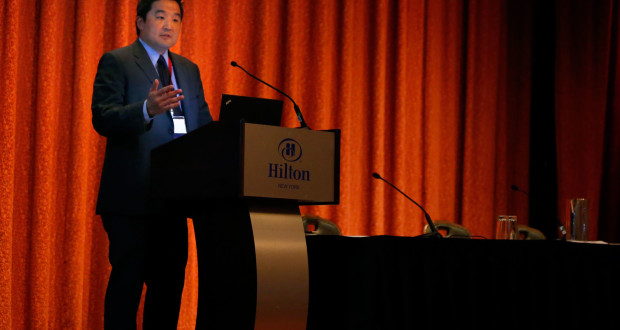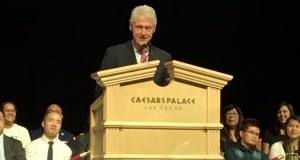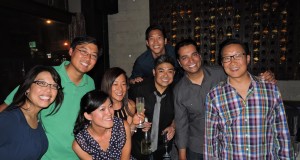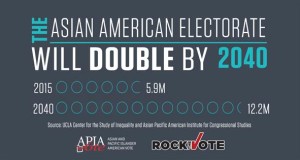This year’s AAJA convention seeks to inspire journalists by offering, for the first time, a series of short talks on avant-garde thinking from industry experts.
From building a sustainable business to the question of whether journalists need another degree, the 20-minute “idea capsules” aim to bring fresh perspectives on the media industry. Thursday’s speakers discussed successful Gen Y leadership and the secrets of independent learning.
Friday’s lineup includes New York Times multimedia producer Jacky Myint, who plans to give a presentation on interactive journalism, and Comcast SportsNet Houston reporter Howard Chen, who is expected to talk about the increasing role of bilingualism in media. Ravi Kapur, an award-winning journalist in San Francisco and Chicago, is scheduled to discuss power structures and his experience owning part of a media business.
The concept of idea capsules centers on the dissemination of thought leadership and innovative ideas is modeled after TED talks, a nonprofit conference dedicated to “ideas worth spreading.”
Breaking away from the traditional panel format, this year’s organizers aimed to find forward-thinking people, both inside and outside journalism, who could give short speeches to encourage AAJA members to think progressively about the industry.
“We recruited experts to help us look for ideas,” said Paul Cheung, AAJA’s national president, who helped organize the speakers. “We need to look for ideas from the outside; not all ideas can be learned from the inside.”
For instance, Cheung pointed to a talk by Jasper Jung, a sustainability analyst with General Motors Corp.
“When people buy a GM car, it represents how they feel,” Cheung said. “They think, ‘This is what I emote, therefore I might buy a GM car.’ Take the same philosophy and apply it to journalism. News is a product. How does your media company appeal to people with ‘emotional sustainability’? We should learn how to produce the product from the best.”
The idea capsules, which run from 4 to 5:10 p.m. Friday, are meant to challenge journalists’ perspectives on change. In order for journalism to continue as a sustainable business, journalists need to adopt an entrepreneurial mindset, said Tom Huang, programming chair of the AAJA 2013 convention.
“I really like how these topics challenge traditional ways of thinking,” he said. “As a journalist, I want to be challenged in my assumptions — in what I think I know — and I also want to get the sense that, as an individual, you really can make a difference and effect change.”
 VOICES Publishing from the AAJA National Convention
VOICES Publishing from the AAJA National Convention








